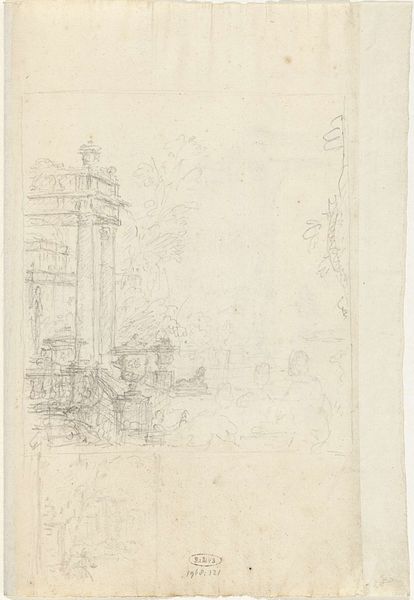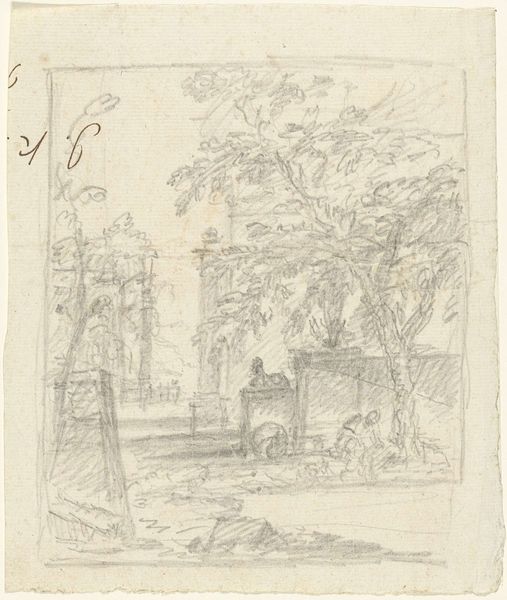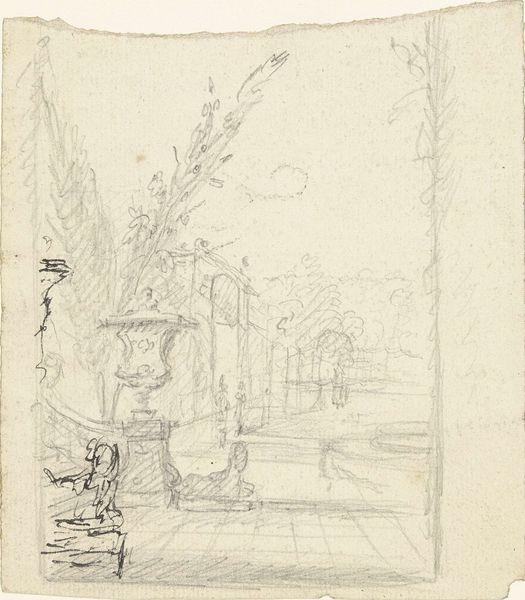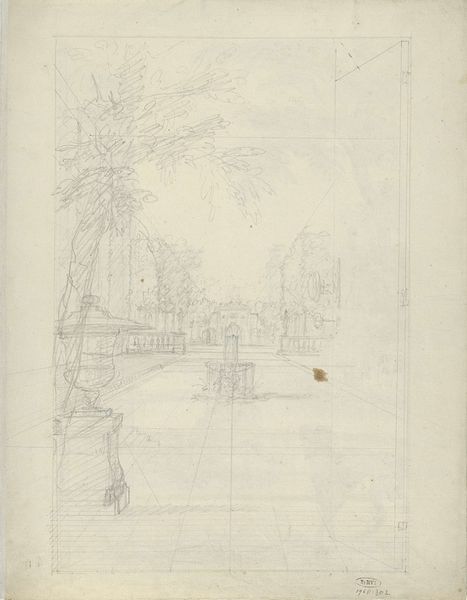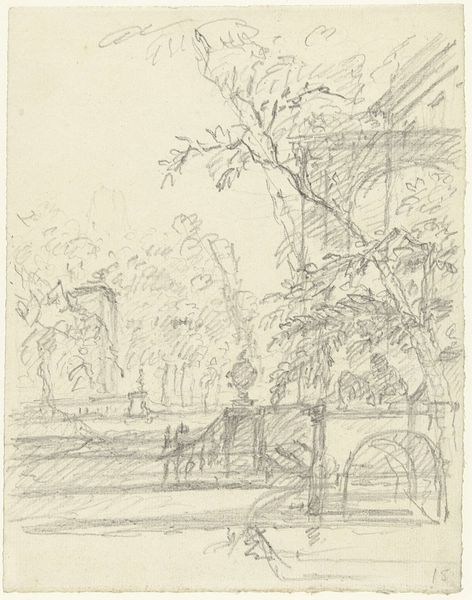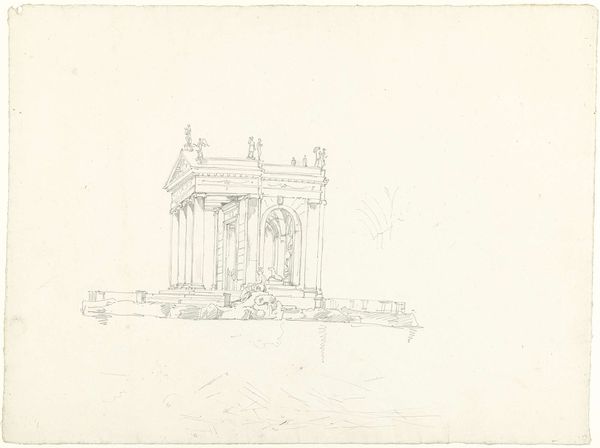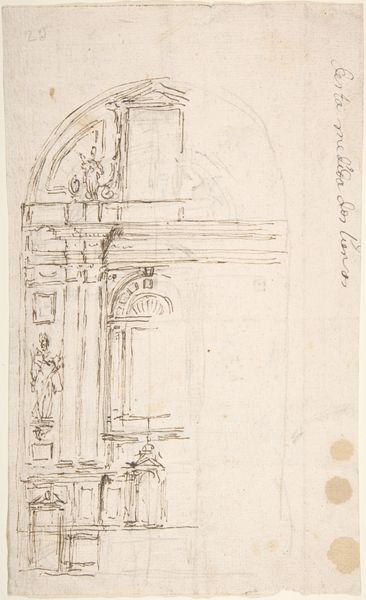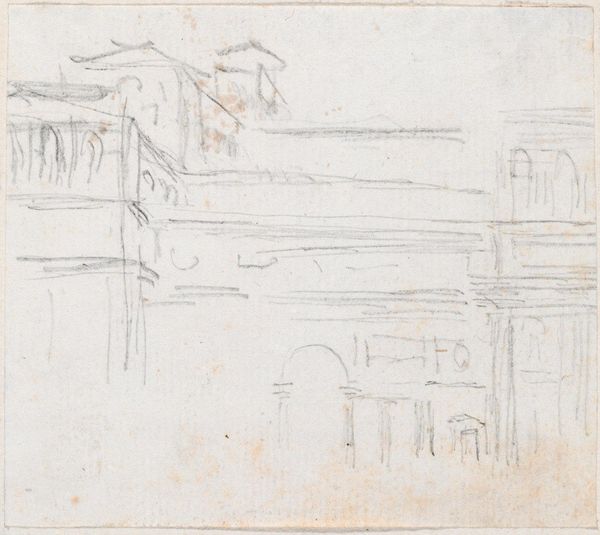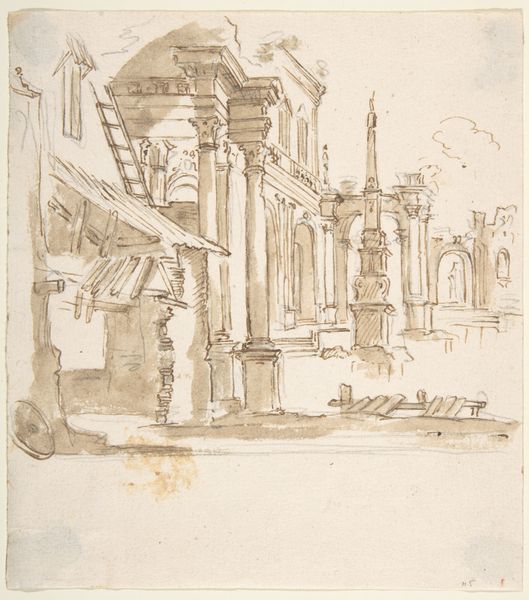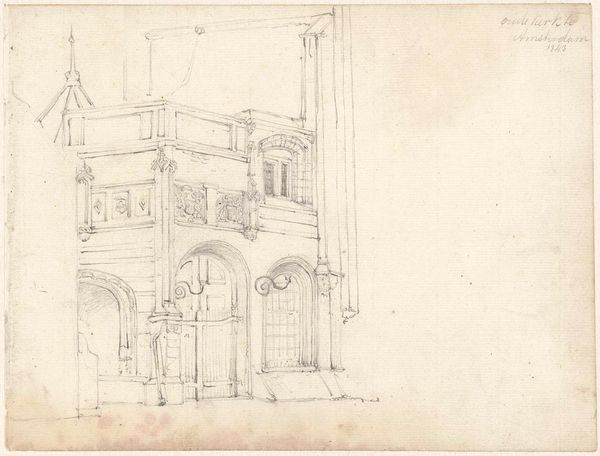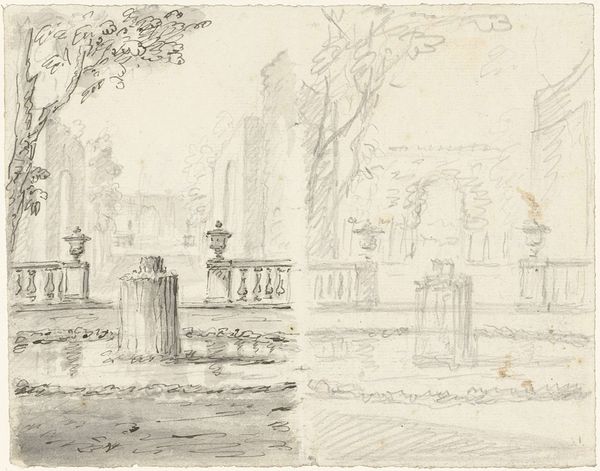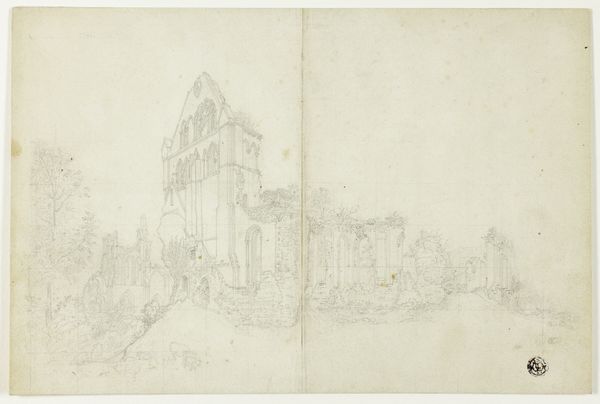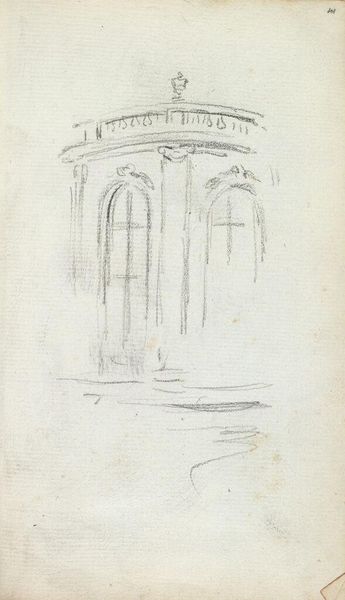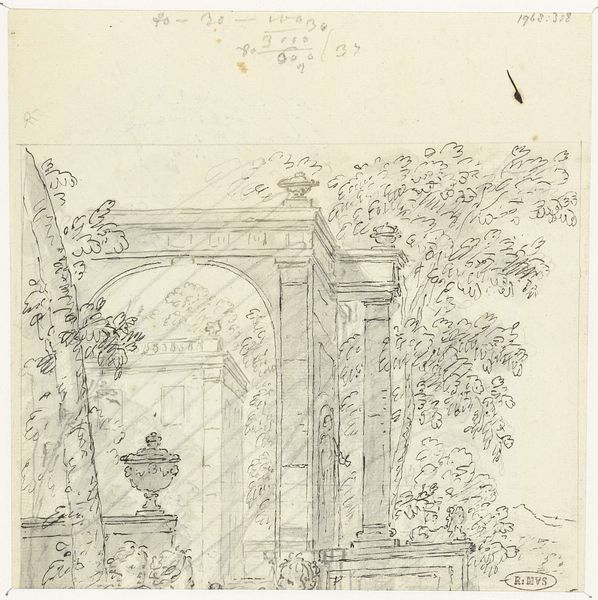
Dimensions: height 331 mm, width 204 mm
Copyright: Rijks Museum: Open Domain
Dionys van Nijmegen created this pencil drawing titled 'Portico met beelden en tuin', or 'Portico with statues and garden', sometime in the 18th century. We can see an elegant architectural structure overlooking a manicured garden. Statues are placed within the portico and along the garden's balustrade. In the foreground are what appear to be members of the upper class enjoying this constructed vision of nature. Made in the Netherlands, this drawing reflects the cultural values of the Dutch elite during this period, who constructed elaborate gardens as symbols of wealth, taste, and control over the natural world. Looking at this sketch, we might ask questions about the social functions of such imagery. Does the drawing celebrate aristocratic ideals? Or, does it subtly critique the artificiality of these constructed landscapes? To answer these questions, we can consult historical sources, estate records, and garden design treatises. These may reveal the complex relationships between art, power, and social identity in 18th-century Dutch society.
Comments
No comments
Be the first to comment and join the conversation on the ultimate creative platform.
